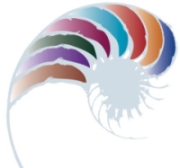<- Homepage: Waste not Wasted: The science of waste at Kate Valley
All LEARNZ field trips targeting primary and secondary schools are closely linked to the New Zealand curriculum, in particular science, social studies and geography. They can also be used by other subject teachers.

Key concepts
Canterbury, carbon cycle, catchment, changing values, chemical reactions, consequences of consumption, conservation, electric vehicles, electricity, electric generation, energy, environment, geology, land use, landfill, methane, recreation, rubbish, sustainability, technological innovation, waste, water quality.
The New Zealand Curriculum - NZC
Key Competencies
LEARNZ virtual field trips contribute to the development of all five key competencies:
| Key competencies | Examples of related field trip components |
| Thinking | Constructing questions to put to experts during Web conferences. |
| Using language, symbols and texts | Interpreting and making meaning of a variety of language and symbols in the Background Pages and throughout the web site. |
| Managing self | Numerous content-related Activities provide students with chances to engage with the material and create their own interpretation of the content. |
| Relating to others | Videos connect students with a range of expert opinions. Students listen actively when seeking answers to video questions. |
| Participating and contributing | LEARNZ Virtual Field Trips are an ideal medium for group-based topic inquiry. They also enable students to transfer new learning into the context of their own communities where they are encouraged to take action. |
(See page 12-13 NZC 2007)
Values
The Waste not Wasted field trip encourages, models and explores these values:
- innovation, inquiry and curiosity
- ecological sustainability
- community and participation
(see page 10 NZC 2007).
E-learning and pedagogy
The Waste not Wasted field trip directly involves learning that is supported by information and communication technology (ICT).
In particular, the trip will:
- Assist the making of connections by enabling students to enter and explore new learning environments, overcoming barriers of distance and time.
- Facilitate shared learning by enabling students to join or create communities of learners that extend well beyond the classroom.
- Enhance opportunities to learn by offering students virtual experiences and tools that save them time, allowing them to take their learning further (Page 36 NZC 2007).
Social Science
| Strand | Achievement Aims | Related background pages |
|
Economic World Place and Environment Continuity and Change |
Level 1: Understand that people have different roles and responsibilities as part of their participation in groups. Level 2: Understand how people make choices to meet their needs and wants | Understand how places influence people and people influence places | Understand how time and change affect people's lives. Level 3: Understand how groups make and implement rules (and laws) | Understand how people view and use places differently | Understand how people make decisions about access to and use of resources. Level 4: Understand how producers and consumers exercise their rights and meet their responsibilities | Understand how exploration and innovation create opportunities and challenges for people, places, and environments | Understand that events have causes and effects | Understand how formal and informal groups make decisions that impact on communities. |
Science
| Strand | Achievement Aims | Related background pages |
|
Physical World |
Physical inquiry and physics concepts
|
|
|
Material World |
Chemistry and society
|
|
|
Living World |
Ecology
|
|
|
Planet Earth and Beyond |
Interacting Systems
|
|
Technology
| Strand | Achievement Aims | Background Pages |
|
Nature of Technology |
Characteristics of technologicaly
Characteristics of technological outcomes
|
|
|
Technological Knowledge |
Technological systems
Technological products
|
|
English
The selected processes and strategies indicators used in the table below are from Level three of the NZC, but aim to cover indicators from levels two to four.
| Strand | Processes and strategies indicators | Example of related field trip component |
|
Speaking, Writing and Presenting |
|
|
|
Listening, Reading and Viewing |
|
|












